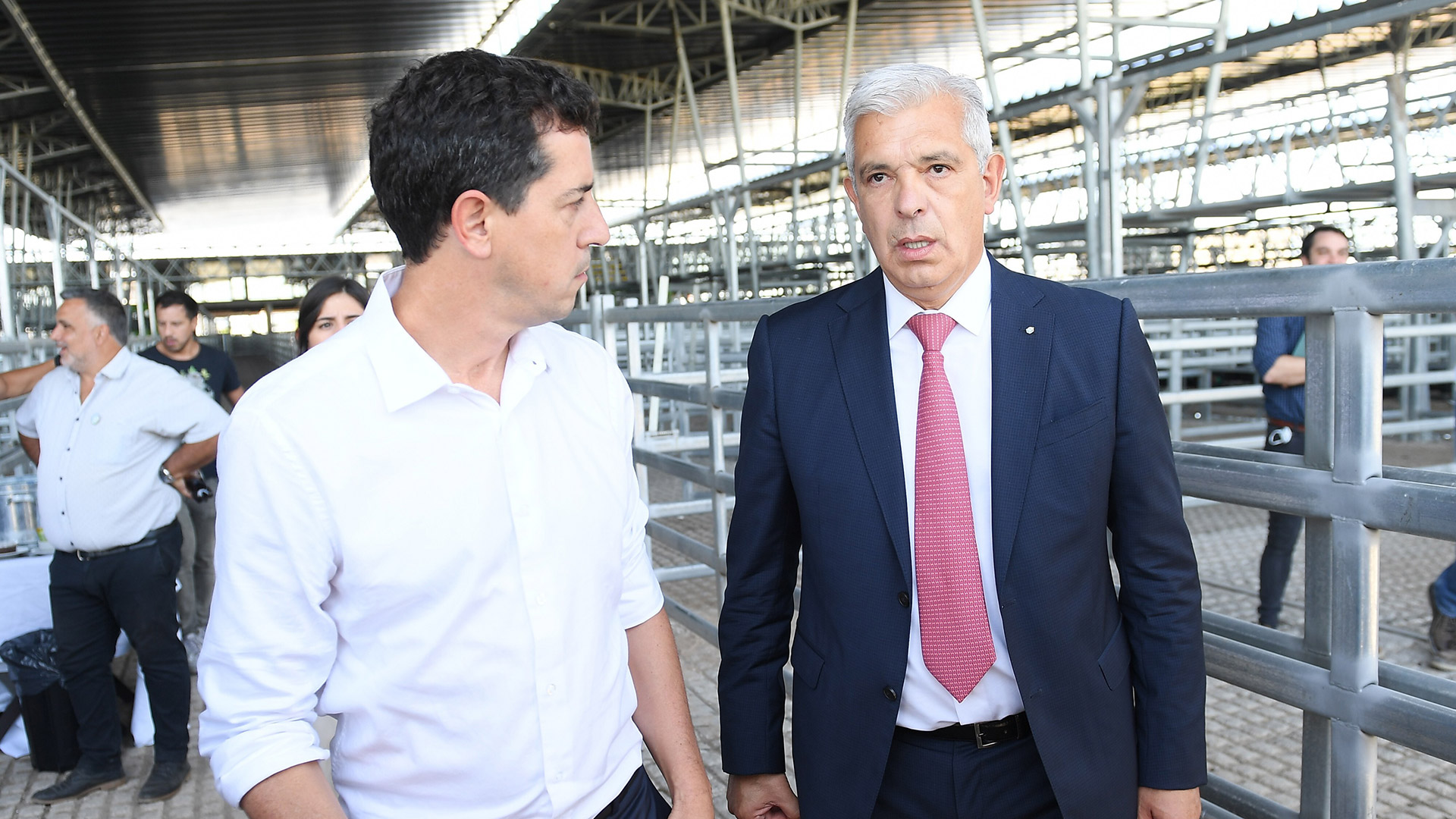
Alberto Fernández has no intention of waging an ideological war with the countryside and is looking for a political diagonal that will allow him to prevent the dizzying rise in commodities due to Russia's invasion of Ukraine from impacting domestic prices and accelerating inflationary levels in Argentina.
“The war scenario affected the price of grain and food and China by collecting grain pushed all prices up. This obliges us to seek a solution that will allow domestic prices to be decoupled from international ones. We are moving forward in conversations and trying to decouple prices,” explained the President at Casa Rosada when asked what he is negotiating with the agricultural sector.
Alberto Fernández intends to close an economic-political agreement with oil and mills before the end of this week. Julián Domínguez -Minister of Agriculture and Livestock-, Martín Guzmán -Minister of Economy- and Matías Kulfas -Minister of Production- are the main protagonists of a negotiation that will be laborious and still has an open end.
At the fifth of Olivos, the Head of State held an extensive conclave with Dominguez, Guzman and Kulfas to discuss the impact of Russia's war against Ukraine on international food prices. Guzmán - with key information collected in Houston - referred to the term “food inflation” and commented on China's strategic decision related to wheat stockpiling.
In this geopolitical context, the conclusion in Olivos was that if Xi Jinping decided to harvest wheat to ensure China's food security, the war launched by Vladimir Putin will be long and will have a strong impact on food prices and its global production and transport chain.
“There is no ideological battle, nor 125. My idea is to close an agreement with the countryside and avoid the increase in withholdings,” said the President in response to the mobilization of the Liaison Table, which recalls the controversial agricultural decisions of Cristina Fernández de Kirchner when he occupied Balcarce 50.

Pedro's Eduardo “Wado” is a political nexus that allows the exchange of confidential data between officials linked to Cristina and ministers who respond to Alberto Fernández. Minister Dominguez has confidence in Wado de Pedro and told him during a helicopter trip to Cañuelas that it didn't make sense to increase retention on soybean meal and oil.
De Pedro, who is Minister of the Interior and complies with all CFK and Máximo Kirchner's orders, replied to Domínguez that La Campora and the Patria Institute did not support the decision to increase camp retention. This information reached the President nonstop and served to ratify a negotiating strategy that appears pragmatic and without ideological bias.
The government has a Staff Agreement with the International Monetary Fund (IMF) and rules out applying price control methods that could affect its approval in Parliament. The Peronist governors would not support a rise in withholdings and Together for Change would withdraw from the parliamentary debate if the economic negotiation strategy places the field -again- as an adjustment variable.
“This week we are going to figure it out. I don't want conflicts. That's why I'm betting on dialogue,” Alberto Fernández predicted during a meeting with certain ministers who negotiate with the countryside.
Presidential optimism contrasts with the skeptical position of the agricultural sector that does not forget the times of CFK. Dominguez swears that there will be no withholding increases and Guzmán hopes to design a mechanism that will defer the impact of so-called “food inflation” on domestic prices.
The meetings will continue today in Government, while the Liaison Table prepares for the worst. The war in Ukraine gives no respite and food is already a scarce commodity that multiplies its value every time Vladimir Putin dreams of rebuilding the Russian Empire.
Últimas Noticias
Debanhi Escobar: they secured the motel where she was found lifeless in a cistern
Members of the Specialized Prosecutor's Office in Nuevo León secured the Nueva Castilla Motel as part of the investigations into the case

The oldest person in the world died at the age of 119
Kane Tanaka lived in Japan. She was born six months earlier than George Orwell, the same year that the Wright brothers first flew, and Marie Curie became the first woman to win a Nobel Prize

Macabre find in CDMX: they left a body bagged and tied in a taxi
The body was left in the back seats of the car. It was covered with black bags and tied with industrial tape
The eagles of America will face Manchester City in a duel of legends. Here are the details
The top Mexican football champion will play a match with Pep Guardiola's squad in the Lone Star Cup

Why is it good to bring dogs out to know the world when they are puppies
A so-called protection against the spread of diseases threatens the integral development of dogs




